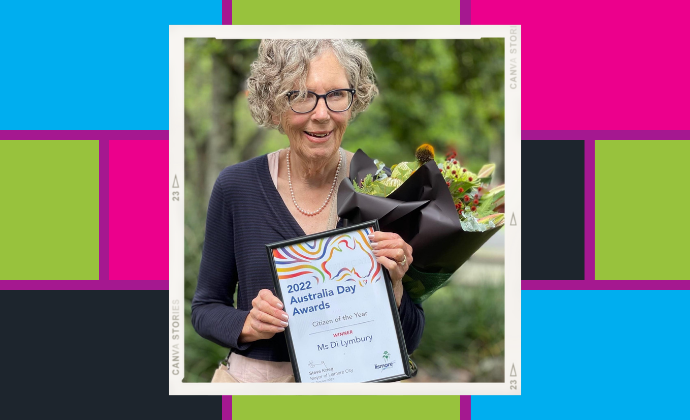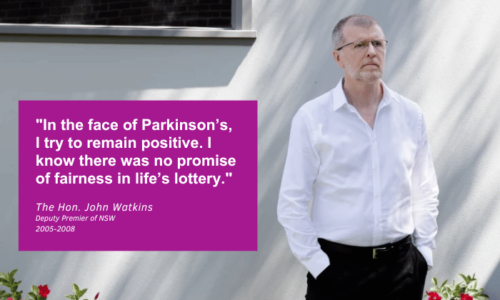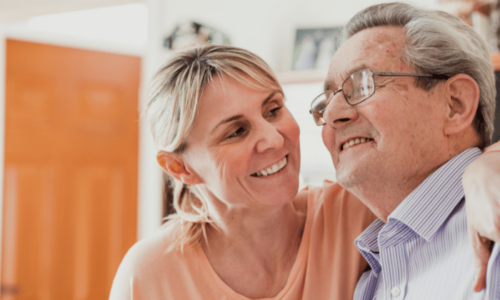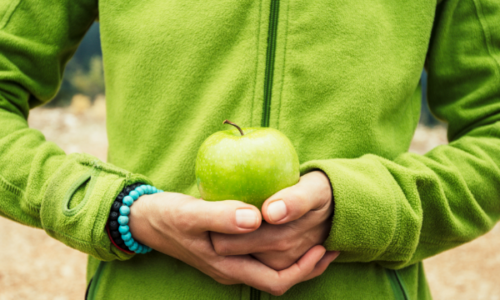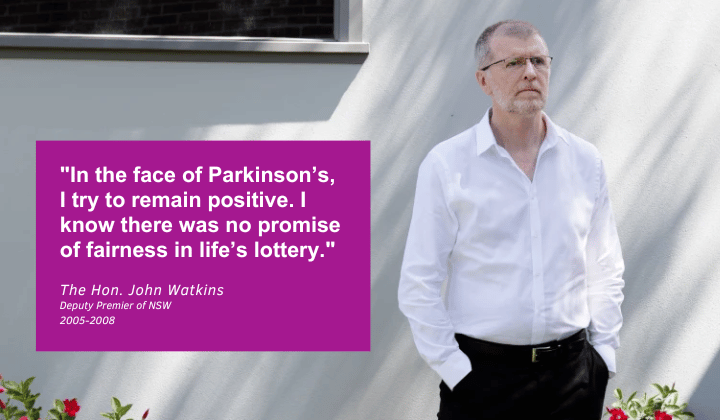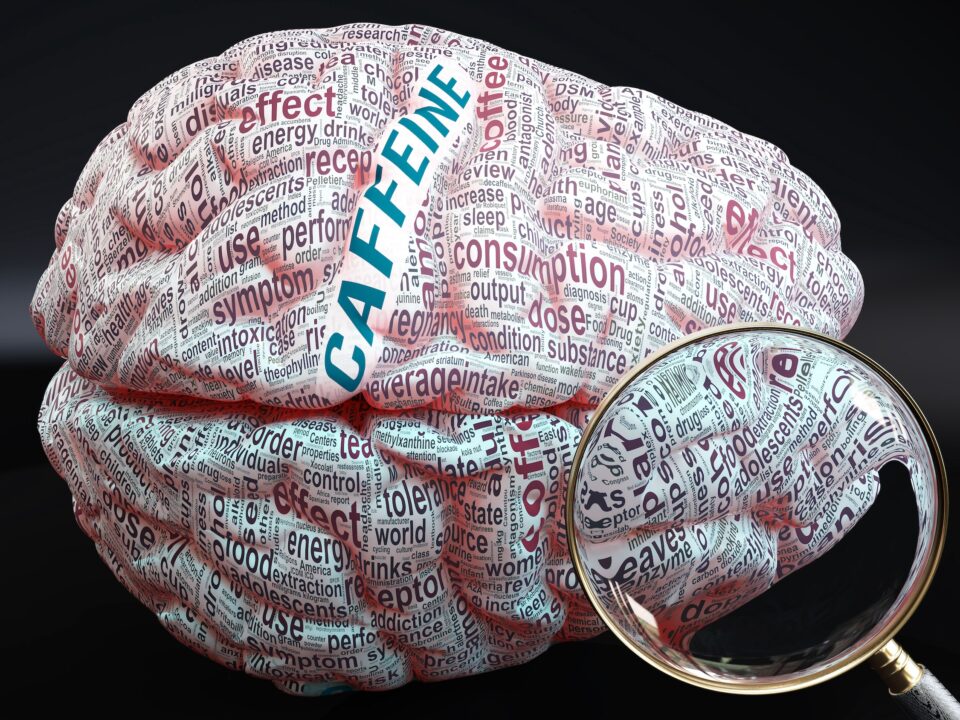Di Lymbury, 69, was born in Moree as her father was working there as a policeman at the time. After she was born, he moved the family to the Northern Rivers where he worked in farming and timber logging while the five children grew up in the quiet countryside.
“It was an idyllic upbringing,” Di recalls. “We didn’t have a great deal of material things, but we had our own milking cows and made our own butter and grew our own vegetables. We never wanted for anything living in the bush.”
Di enjoyed both schoolwork and sports, especially swimming. She had no particular plans for a career at school, but once she started economics at university she realised she wanted to change subjects.
“I’d always really enjoyed maths as well as being very creative and interested in the arts,” Di says. “I changed to an arts degree and became a primary school teacher. I’d never aspired to be a teacher when I was young, but I loved being a primary teacher. I eventually went back to university and did a Masters in Educational Studies and worked teaching maths later on too.”
Di married and had two children while she continued her teaching career, and it was while the family was living in the Hunter Valley that she also began support group work to assist carers of people with mental health issues.
“I helped people in their interactions with medical teams,” says Di. “I even ended up creating a card for people which had tips on how to handle interviews after I saw that medical staff had cards with tips for interviewing patients! They were very popular and at the time, they were adopted by the local HNE Mental Health service
“They were issued to family and carers of those with a mental illness. I convened a local Carer Assist support group for family and carers of the mentally ill. That’s how I got started in support groups.”
Di, who is now Convenor of the Lismore Parkinson’s Support Group, was still teaching full time in the Hunter Valley 16 years ago when she had to take leave after a highly stressful incident at the school where she taught.
“After the incident I was trembling, and I assumed it was the stress of it,” she says. “I was referred to a psychologist to help me deal with the stress. She was a wise, elderly lady, and after a couple of sessions she told me that I didn’t need her, I needed to see a neurologist.
“I went to see my doctor and told him I needed a referral to a neurologist, and he turned and looked at me and said ‘Oh, you could have Parkinson’s.’ I went home that night and googled the symptoms I had, and they all came up as Parkinson’s.
“I realised that I had a kitchen drawer full of gadgets which my husband had been helpfully buying for me to try and make it easier to do the things he saw me struggle with, like opening jars, and peeling vegetables. He’d also brought me an electric toothbrush because he’d seen I had problems there.
“As a teacher I’d always been proud of my chalkboard and setting things out neatly, but I’d ended up changing to preparing lessons to project onto a board as my writing would start out large and then get smaller and smaller.
“Once I was diagnosed it was actually a relief. I didn’t have to fix this on my own anymore. When I was given my first medication I was told it might take a few days before I noticed anything, but after I’d taken my second tablet I started to feel normal again!”
Di cut her teaching load by half after her diagnosis.
“I think when you get something like this it pulls you up,” she says. “I reevaluated everything, I wanted to think about what was really important to me. I decided that I was really going to focus on my physical health and staying strong by making the time to do exercise every day.
“I was already swimming to help me deal with what I had thought was stress, but I now also go for long hikes through the hills here or do stretches. I also do strength and flexibility exercises, Tai Chi, and Dance for Parkinson’s.
“It’s really important to keep your body strong and flexible. I’m a firm believer you can have a measure of control with exercise.”
Di and her family then moved north to Cairns where her adult daughter and her family were living. Eight years ago Di and her husband and son moved to the Northern Rivers.
“It’s my home here,” she says. “I have a sister living here and two brothers and I wanted to be closer to them as time passed. When I settled in I rang Parkinson’s NSW to see how to get in touch with the local Support Group, only to be told that there wasn’t one as it had folded. But would I like to start it up again?”
For her services leading the Support Group over the years since, Di was named Citizen of the Year in the Local Government Area Australia Day Awards. But the recent severe flooding in the region which devastated so much of the housing and infrastructure really challenged the Group.
“After the first flood we had nowhere to meet but the Group planned to take a van and do a series of morning and afternoon tea meetings at some of the locations across the region,” says Di. “I had done a lot of baking for it, and we were ready to go when the second round of floods hit, Then a family member got Covid, and I was a close contact. By time we got through that, it was too close to our next event. But we email our Group participants all the time to stay in touch.”
Di also believes that having a passion for something is important in life, and she is a passionate photographer.
“I get a dopamine hit every time I take a good photo,” she says. “It’s such a boost, and something to take your focus off your issues. I also love to write. I do poetry and inspirational pieces from my experience of life.”
Some of Di’s photos and inspirational posts are used on Lismore Parkinson’s Support Group and the ANZ Parkinson’s Support Facebook pages, providing encouragement and support across the Australasian Parkinson’s community.
“I find if you put in something to help people, you get so much more in return,” says Di.

